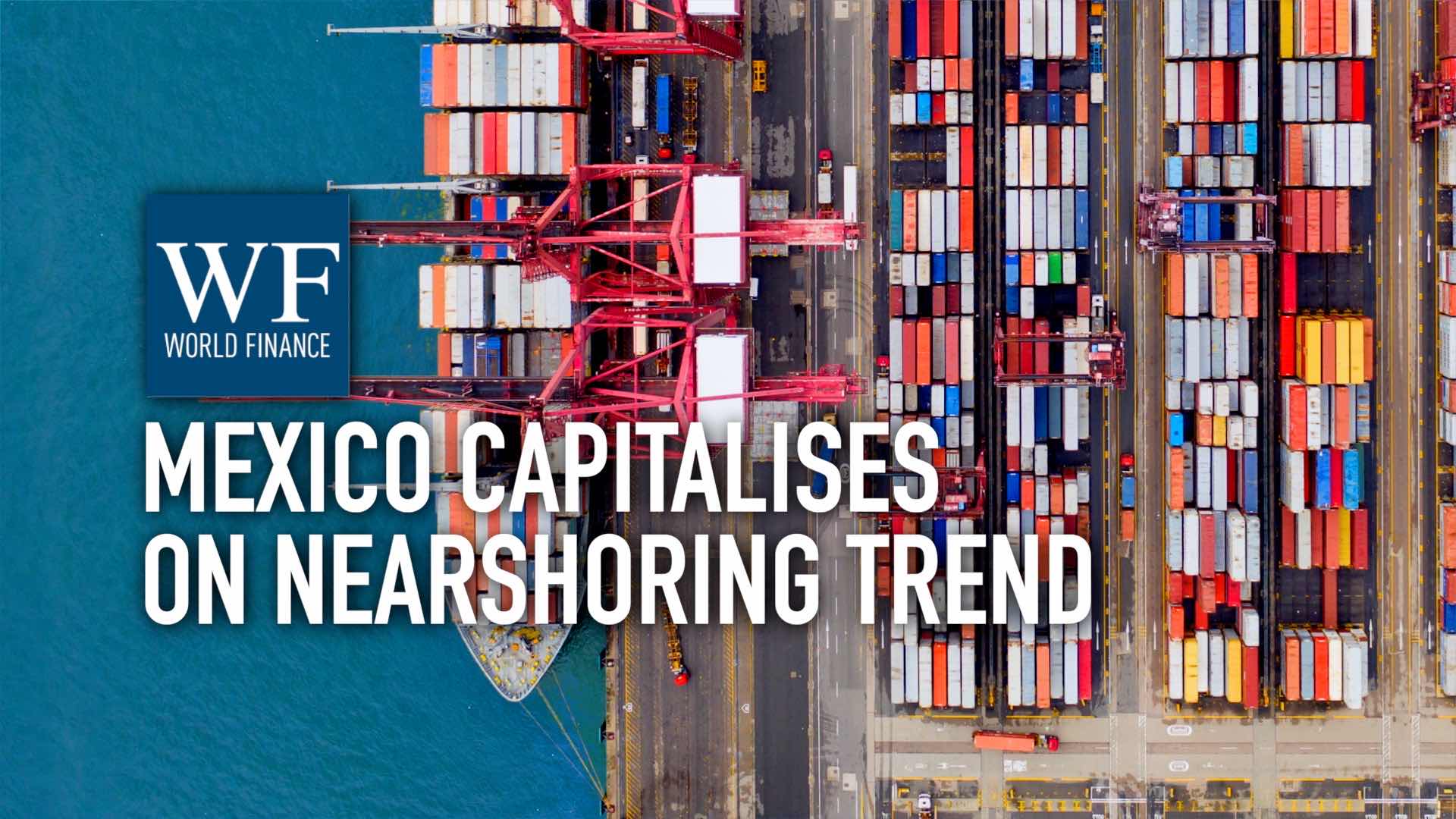Unifin CFO: Mexico’s thriving SME sector will continue to drive our growth
CFO Sergio Camacho explains the leading lease company's strategy as Mexico prepares for its new president
Related:
Transcript
Unifin is a leading financial services company in Mexico, offering leasing, factoring, and automobile credit services. Its CFO Sergio Camacho explains the key trends that have been affecting the business, how it has empowered its regional offices to capitalise on Mexico’s strong macro-economic growth – and what the next five years are likely to hold as Mexico prepares for its new president. Watch the second half of this interview, where Sergio discusses Unifin’s best corporate governance practices.
World Finance: Unifin is a leading financial services company in Mexico, offering leasing, factoring, and automobile credit services. Sergio Camacho is its CFO; he joins me to discuss the trends in the industry, and the company’s award-winning corporate governance.
But first Sergio, talk me through your business lines and how the company is structured.
Sergio Camacho: We have three business lines: operating leasing, factoring, and auto-loans.
Our main business is by far operating leases, in which we finance whatever asset an SME may need, providing full visibility on how much they need to pay on their initial down-payment, their monthly rent, and their residual value. So that is a very, very good financing alternative for the SME sector.
World Finance: What are the key trends that have been affecting your business?
Sergio Camacho: Well the key trends have been the growth, on a macro perspective. Mexico – even though it has not shown tremendous growth, like whatever you can see in other emerging markets – but it has shown steady growth. And the growth has been driven by investments, mainly by the SME sector. Which is a sector that we focus on. And that investment needs to be addressed by buying machinery or getting whatever you need to do on a production line.
The operating leases precisely solve that issue. Because we can lease whatever product – from an aeroplane, to a printer, or a camera like the studio we are in – and provide with the lease to the SME sector. And that’s a way that we are supporting the growth in the country.
World Finance: And how have you been capitalising on that growth?
Sergio Camacho: Well we have 13 regional offices. We do a lot of market research on what are the trends, on GDP per region, within Mexico. And based on that information, we put the regional office there, to be very close to our customers.
We hire local people, so these local people know the families, or know the founders, know the entrepreneurs that are within that city or within that region. And that posts a very good competitive advantage towards how to approach these people.
World Finance: Now, what impact is Mexico’s forthcoming new presidency likely to have on your business?
Sergio Camacho: Well, since we are focused on the SME sector – and it’s a very resilient sector within the Mexican economy – we do not expect any significant change in the trend.
However, whatever the public policies that this new president may impose to the country: that will have an impact on the macro growth, and of course that will have an impact on our clients and our customers, on their decision-making process for investments, for acquiring new machinery, or acquiring a new product or business line in their respective corporations.
So it will have an impact, but it will depend on how he’s going to be towards the public, fiscal, and monetary policies.
World Finance: So what would you say is your growth trajectory for the next five years?
Sergio Camacho: We will continue growing. This company was founded in 1993 – months before the Tequila Crisis. So within the company we have management that has been through the Tequila Crisis, through the Dot Com Crisis, through the Lehman Brothers Crisis. And Unifin continues to grow. So depending on how the macro is – thinking about a crisis, or whatever – we can capture that opportunity for growth. Because the traditional banks, whatever they do, they just reject and pull out from the country. Ninety percent of the traditional banks in Mexico are foreign-owned.
So we’re there. We’re very close to our clients. And that of course puts us in a very, very good position towards the potential growth of the company.

 Grupo Financiero Banorte: Supporting Mexico for 125 years
Grupo Financiero Banorte: Supporting Mexico for 125 years Banorte: Nearshoring trend could gain $168bn for Mexico over the next five years
Banorte: Nearshoring trend could gain $168bn for Mexico over the next five years
